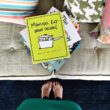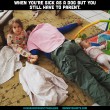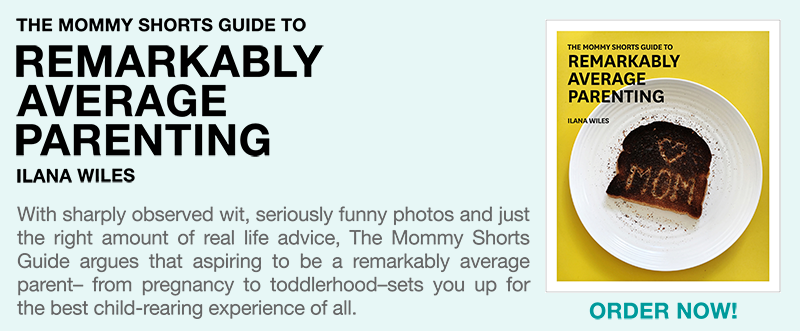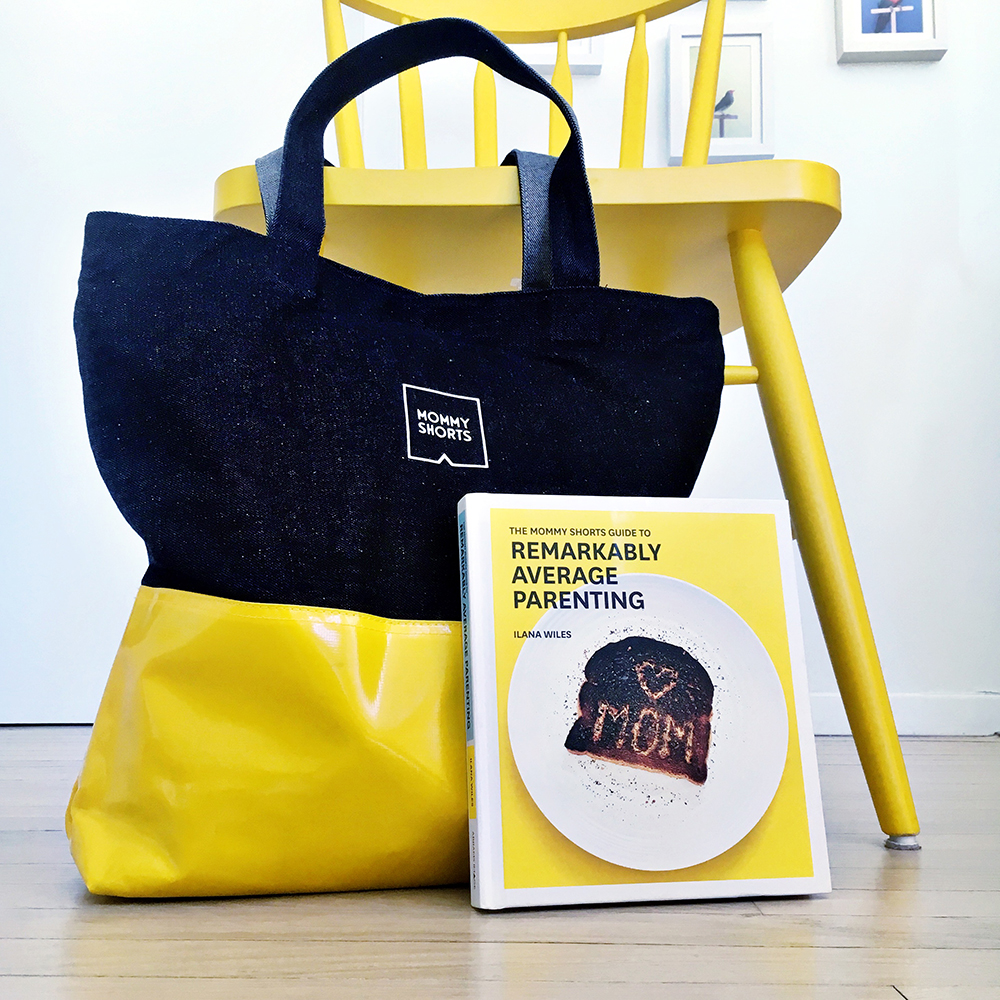By Nikki Nardell of @3Snowflakes
It is a beautiful spring morning at the Al Beech Food Pantry in Kingston, Pennsylvania. Normally, we would be lining up dozens of baskets for our annual Easter food distribution. Instead, we are preparing for “Covid Crisis at the Pantry, Week 4.”
We are getting used to our new normal, our new flow. The gloves and masks, the lingering smells of sanitizer and bleach which no longer seem odd, but essential, for our daily duties and safety. The lines are long; so much longer than we had anticipated when we planned for Easter week a few short months ago. Most people are courteous and grateful, even humbled by our services. But there are quite a few who are embarrassed, who are quick to check in and make it known that they are “just getting food for a friend.” There are many who never envisioned themselves waiting in line for free food. It breaks my heart.
It occurred to me that most people don’t realize that a good many of us volunteers are customers of the pantry as well. Like me. One thing I know for sure— many of us don’t consider how quickly the tables can turn. One moment we are waiting in line to give, the next we are waiting in line to receive. None of us could have predicted this pandemic and the immediate, catastrophic loss of jobs that followed. In the same way, none of us can predict a tragic slip on the ice, a grim diagnosis, the loss of a loved one, or a car accident that can flip your financial stability upside down.
I remember when my “flipped upside down” moment happened. I was the proud mother of one beautiful baby boy, and we had just learned we were expecting baby number two. Life was perfect. Then, suddenly, news came that baby number two was actually babies number two AND three – twins! Later, after hours on a cold, hard ultrasound table, we learned that one of the twins would be born with serious and complicated medical issues. Life didn’t just flip upside down, it seemed to keep spinning. We were now facing life with three babies under three, and an unknown mountain of medical needs and costs. It wasn’t exactly the story I had envisioned for my family. It was terrifying.
Months later, the twins were born and suddenly every decision was filled with uncertainty. Breastfeeding became impossible. Commercial formulas were not working, but prescription formulas were incredibly costly. Our specialized formula bill alone was nearing $1000/month and we were drowning.
I remember the first time I went to the WIC office. I pulled up and parked in the lot. Then, for a while, I sat in the car and just cried because I no longer recognized my life. The lobby wreaked of cigarette smoke. Pamphlets on how to properly feed your child were everywhere. A young mom probably half my age sat across from me staring blankly at the TV while bouncing a baby off her leg. She didn’t even notice me sit down, and I was thankful for that. I wanted to be invisible. I wanted to get in and get out. A year before, I was buying organic peaches at the farmer’s market and now here I was in the waiting room of a WIC office. I was absolutely MORTIFIED.
For the rest of my life, I will remember the first time I went into a local grocery store and handed the check to the woman behind the counter. She looked at me, looked at my order, rolled her eyes, sighed, leaned over to her call button and said into the store microphone: “I need a food stamp approval in Aisle 4. Food Stamps Aisle 4.” She just stood there, silently staring at me up and down, and tapping her fake fingernails on the black conveyor belt, waiting for her manager to come and approve my signature. My whole body shook in humiliation. My face was on fire. I felt like every eye in the store was aimed at “The Lady with Food Stamps in Aisle 4.” I looked down at my phone, pretending to check the time. The woman behind me asked “Is that the new iPhone?” I nodded my head with a half smile. “Well isn’t that interesting,” she said with cold arrogance to her husband, “I suppose we pay for that too.”
Even now, years later, I can feel my face hot with the same embarrassment. I can still see her face and feel the anger. After what seemed an eternity, the manager came and did her thing, gave me a quick smile and went on her way. I grabbed my groceries, ran out to the car, and sobbed uncontrollably into my steering wheel. From that point forward, I went to great lengths to shop in neighboring towns and at odd hours. The more isolated the store, the better. I felt like cashing my WIC checks to feed my family was a dirty little secret I had to keep hidden.
I hated all of it.
A few years later, an old high school friend (and community food-insecurity advocate), Clancy Harrison, posted a request on Facebook asking people to share their stories about using WIC or Food Stamps. I was certain she was looking for upbeat stories, but I felt the need to respond.
I wrote:
“Hey Clancy, not sure what you are looking for but I used WIC when the twins were born and absolutely hated it. It was humiliating. Honestly, we probably couldn’t have survived without it, but it was just so embarrassing to use those checks. This probably isn’t the response you were looking for. Nevermind.”
Clancy replied immediately, saying that the honesty in my response was exactly what she was looking for. And that’s when the tables turned again, so to speak. Something about having that conversation with Clancy reopened the flood gates of emotion I felt over that initial experience, flood gates I didn’t even realize I was holding shut so tightly.
I was embarrassed.
I was angry.
I was hurt.
But most notably, I realized, I was ashamed of myself for FEELING SHAME.
For using the very assistance that was created for these “life flipped upside down moments.” I wasn’t ashamed of NEEDING help. I was ashamed of USING the help that was readily available. It took years for me to realize that I was ashamed of the stigma associated with food insecurity.
Thankfully, years later I was able to redirect my messy ball of feelings about my food insecurity into positive action. Once I shared my story, friends and strangers alike were suddenly quick to share their similar experiences. I had finally come to terms with the beliefs and privilege with which I regarded my own food insecurity, and in turn this helped me see how many were living with the same silent pain within my own circle of friends and community.
I partnered with Clancy to help her with the local food pantry she had dedicated her life to maintaining. It is my way of paying it forward. I vowed never to be that woman in the grocery store who made such wrong assumptions about my iPhone, or that fingernail-tapping clerk who studied my wardrobe up and down as she waited for her manager. I would NEVER be the reason someone retreated to his or her car to cry, just for doing everything she could to feed her family. I would be a warm, smiling face and an open ear to people when they need it most. I would be one less person willing to kick them when they are already down. I would look beyond my own privilege to see that REALITY is actually very different for each of us. I would be a Helper.
Our food pantry does not serve handouts. We do not serve judgment. We serve opportunity. We serve a little breathing room, where (for a moment) people do not need to worry about where their next meal is coming from. We serve hope, knowing that a well-fed community is full of thriving citizens who themselves will want to give back once they are back on their feet.
We serve people like me.
Before Covid-19, our pantry would serve roughly 50-60 families in our area. Over the past three weeks, our numbers have risen 1700%! The scene has transformed from one where people lined up at our door, to a three-mile line of cars winding through our city streets. Our food pantry has become a safety net for those most vulnerable in our community, those who are no longer able to go to the grocery store without being overcome with anxiety and fear: the elderly, the immunocompromised, the growing number of struggling poor.
Slowly, but surely, this quarantine will be lifted and we will cautiously venture back to our lives and the “new normal” we will all share. The effects of this pandemic, however, will ripple through our personal and collective lives for years to come. One thing is certain, the doors of our food pantry will remain open long after many return to work and school. We will continue to serve our community in every way we can.
A friend recently confided to me, “My fear is that we will walk away from this crisis without having learned anything.” I understand that fear, but I don’t think many of us will go back to “normal life” any time soon.
I hope we remember the feeling of not having everything we need at our immediate disposal. I hope we remember that there are people in our community who feel that way every single day. For many, the grocery store always feels barren because it is full of things they can’t afford; and even worse, they would rather go hungry than use the resources available to them. For many, the stigma of food insecurity is simply too overwhelming.
It is my hope that we each carry a little bit of this ‘Covid uncertainty,’ as as we move forward. Not to dwell on hard times, but to come away with a life lesson, so that those hard times were not in vain.
I hope we all remember:
…the feeling of seeing bare shelves at the grocery store.
…the feeling of having to do without.
…the feeling of checking in our neighbors.
…the feeling of offering help.
…the feeling of needing help.
…the realization that what happens in our community affects all of us.
Whether or not your life has had a “flipped upside down” moment, I urge you to use kindness and empathy with those around you. If you (or a friend) find yourself needing assistance, please contact your local food pantry to learn about the options available to you.
Life is uncertain enough; planning your next meal should not be. Let us help.
——————————–
If you’d like to contribute your story, follow @mommyshortssquad on Instagram and tag #mommyshortsquad on any pics that you think would be a good topic for a post.
You can follow Nikki at @3Snowflakes on Instagram.



























Nikki, Thanks for your revelation maybe now people will not judge others by outside appearance. Learn to accept what we see and not criticize others without knowing the whole story. Thanks for what you do and who YOU Are. One beautiful person and a credit to society and your family.